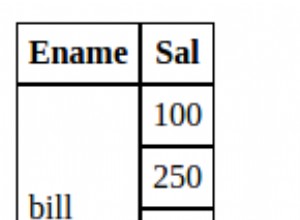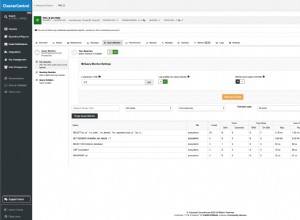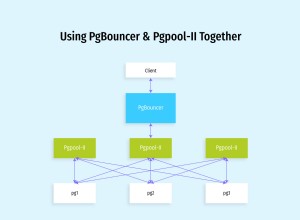Jeśli chcesz uzyskać ogólne rankingi, niestety musisz posortować całą tabelę. Mówiąc najprościej, nie możesz poznać czyjejś rangi w tabeli bez znajomości innych rang w tabeli.
To powiedziawszy, jeśli martwisz się wydajnością, jest tu dość łatwe rozwiązanie — buforuj wynik zapytania rankingowego (może do innej tabeli MySQL!) i zapytaj o to dla wszystkich swoich odczytów. Gdy ktoś opublikuje nowy wynik, ponownie oblicz tabelę tymczasową. Możesz okresowo usuwać wszystkie rekordy w ramach określonej rangi (powiedzmy, że każda osoba w rankingu poniżej 100 zostanie usunięta z tabeli wyników), aby przyspieszyć obliczenia, ponieważ nikt nigdy nie awansowałby w rankingu po powaleniu przez wyższy wynik.
# Create your overall leaderboards once
create table leaderboards (rank integer primary key, score_id integer, game varchar(65), user_id integer, index game_user_id_idx (game, user_id))
# To refresh your leaderboard, we'll query the ranks for the game into a temporary table, flush old records from scores, then copy
# the new ranked table into your leaderboards table.
# We'll use MySQL's CREATE TABLE...SELECT syntax to select our resultset into it directly upon creation.
create temporary table tmp_leaderboard (rank integer primary key auto_increment, score_id integer, game varchar(65), user_id integer)
select ID, GameName, UserID, from scores where GameName = '$game' order by score desc;
# Remove old rankings from the overall leaderboards, then copy the results of the temp table into it.
delete from leaderboards where game = '$game';
insert into leaderboards (rank, score_id, game, user_id)
select rank, score_id, game, user_id from tmp_leaderboard;
# And then clean up the lower scores from the Scores table
delete from scores join tmp_leaderboard on scores.id = tmp_leaderboard.score_id, scores.GameName = tmp_leaderboard.game where tmp_leaderboard.rank < 100;
# And we're done with our temp table
drop table tmp_leaderboard;
Następnie, gdy chcesz odczytać rangę w grze:
select rank from leaderboards where game = '$game' and user_id = '$user_id';




